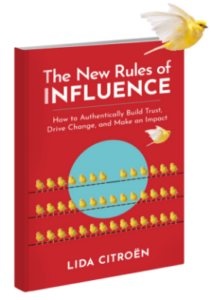To grow in your career, you need to show what you can offer in the future: This requires a clear value proposition, visibility, a network of contacts and focus on a career direction.

Clarify Your Value Proposition
To speak to what you can offer someone else, you must be clear on who you are, what you care about and who you want to serve. With clarity, you can best decide which employers, jobs, career paths, relationships and opportunities are aligned with who you are and what you want out of life.
A great way to clarify your value proposition is fill in these prompts:
I want to be known as ________________________________.
Here, you’ll list your ideal reputation: How do you want others to see you, to value you and what do you want to be known for? Push past sentiments, such as “hard worker and leader,” and get specific. You might say, “I want to be known as someone who always gave 100%, who sought solutions to high-risks situations and who made others feel they could trust my actions and words.”
To serve ________________________________.
List your ideal target audience. Think about who you work best with or care the most about helping: Is it people who are analytical or more creative? Marginalized individuals looking for purpose in life? Be specific about the people you’d like to make an impact with; it’s OK to be focused as this will give your career more intention.
So they will ________________________________.
What are you expecting the people you’ll serve with your offer, talents and gifts to do? Do you want them to pay it forward, tell someone else, help you in return or make the world a better place? Again, specificity here is very helpful.
These prompts help you simplify what you’re working toward and who you’ll seek to have influence and impact with. The more you learn about who you are and how you want to be known, the more you can drive opportunities in that direction.
Visibility Matters
It simply isn’t feasible to expect to grow your career if no one knows who you are. Visibility doesn’t only mean being found online (on LinkedIn, for example). While you certainly should have an online profile that makes it easy to find you and learn who you are and what you can offer, visibility also means:
• Speaking up in meetings. Don’t wait for everyone else to offer ideas first. Share your insights and opinions when you have them. This helps you get noticed.
• Get involved in your community. Whether it’s volunteering for a nonprofit or working in community groups, when others know you, they can help offer opportunities to you.
• Take risks. Perhaps the idea of public speaking terrifies you, but you’re asked to present on the team’s latest success. This could be a great way to show your professionalism, passion and expertise. And you might find that you enjoy the spotlight.
• Offer to lead. If someone needs to take on a project or lead the team, raise your hand if you can. This can be a great way to get noticed.
Work Your Network
Your professional network of contacts should be a carefully curated group of individuals who serve distinct purposes in your career. While you have friends and family you socialize with, your network works differently.
These are individuals you know professionally, who will help you, support and guide you and refer and endorse you with the expectation that you will return value to them. The value can also be referrals, endorsements, support and guidance, but it’s unique to what they need, as your needs are to you.
Because your network is looking to provide value to you, it’s important that they feel appreciated.
Focus on Career Direction
I don’t believe that you must know exactly where you want to be — what job title you’ll hold and where you’ll work in 10 years — to be successful. But you should have direction. If you desire to work in social justice, then starting to work in organizations that serve public good is a smart move.
As you grow your career toward a career in social justice, you’ll make decisions, volunteer in communities, form relationships with influencers and leaders in that field and build your skills such that when you’re ready, you can fully immerse yourself in your desired career field. Direction gives you focus.
Most of us don’t exactly know what our career goal is. But when you can have a sense of career direction, you can build the steps to a meaningful, fulfilling career. Clarity around who you are and where you’re headed helps others identify opportunities for you, can make you desirable to employers who may want to advance you, and can be more powerful than a resume of skills and experiences.
Extract from my article on Military.com

